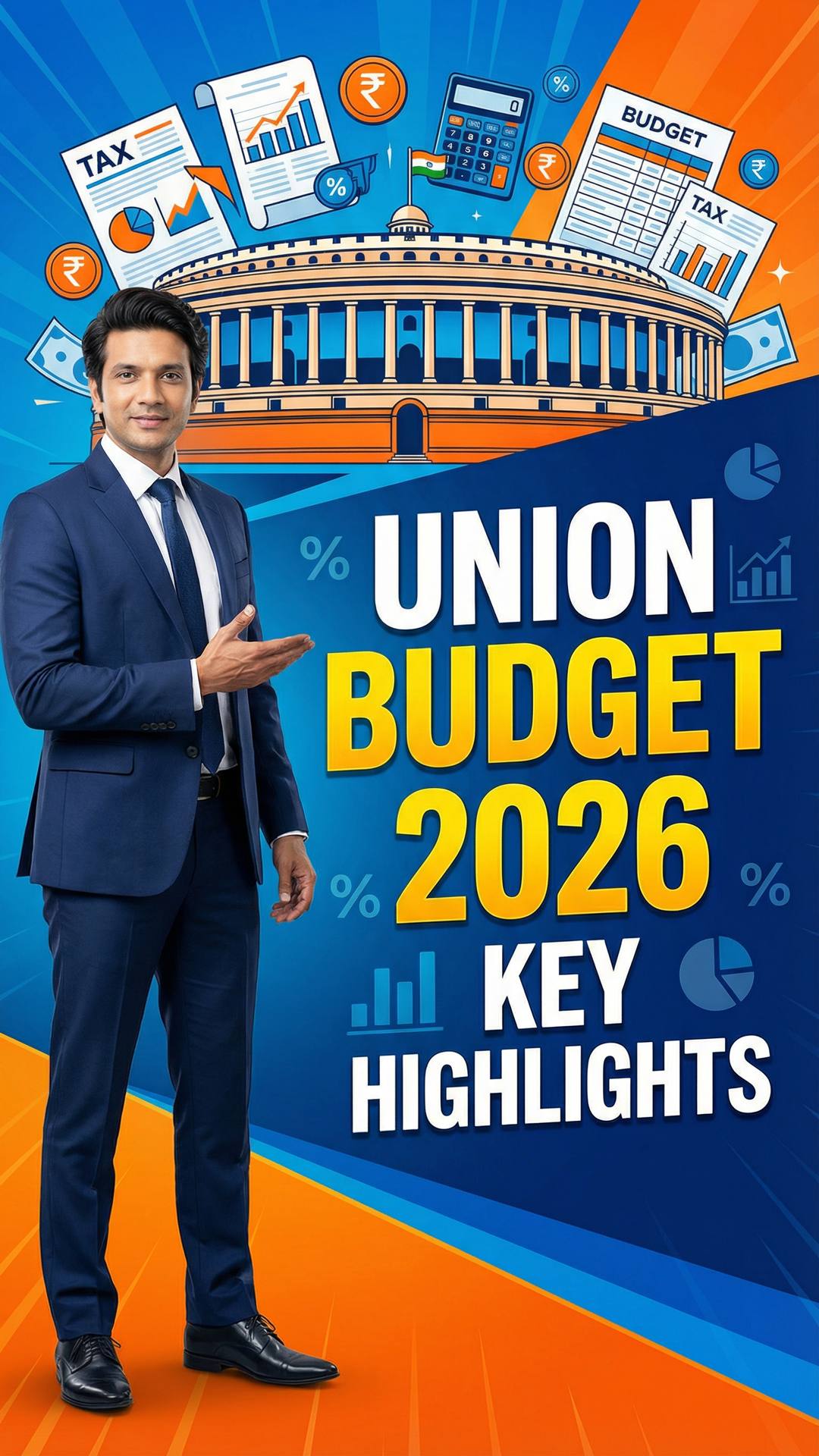Union Budget 2025: Here’s What It Brings for You – Part 1
The Union Budget 2025 has introduced several key reforms aimed at economic growth, ease of compliance, and financial relief. This video summarises the major changes and introductions for Indian citizens.
Under the vision of ‘Viksit Bharat,’ this budget focuses on poverty reduction, quality education, accessible healthcare, employment generation, and women’s economic participation.
A major highlight is the simplification of income tax rules. Salaried individuals earning up to ₹12 Lakhs will not have to pay any income tax. The TDS threshold on rent has increased from ₹2.4 Lakhs to ₹6 Lakhs, and senior citizens now enjoy a higher TDS exemption limit of ₹1 Lakh.
There are major exemptions in customs duties, especially on life-saving medicines, EV batteries, and shipbuilding materials. MSMEs and startups receive a boost with new credit guarantee schemes and a ₹10,000 Crore Fund of Funds. Additionally, 10 Lakh ‘Customised Credit Cards’ are to be introduced.
The budget also announced schemes to support India’s toy, footwear, and shipbuilding industries. This could create employment opportunities and driving exports. With several changes across multiple sectors, this budget aims to fuel long-term economic growth.
To learn about other reforms, watch the second part of our detailed breakdown of the Union Budget 2025, only on Academy!

Key Takeaways
The Budget 2025 prioritizes poverty reduction, quality education, healthcare access, job creation, and women’s economic inclusion
Income tax is simplified to ease the burden on taxpayers, with no tax for income up to ₹12 Lakhs
TDS and TCS rules are changed to ease compliance, relaxed TDS norms for senior citizens and decriminalisation of TCS delays
Import duties are eased on vital life-saving drugs, while exemptions are extended for EV battery production and ship manufacturing
Higher credit guarantee limits and a ₹10,000 Crore Fund of Funds is set to boost the MSME and startup industry
10 Lakh micro enterprises will benefit from new ‘Customised Credit Cards’ with a credit limit of ₹5 Lakhs
Initiatives like the 'National Action Plan for Toys' aim to boost specific sectors and enhance competitiveness
What to Watch Next
Bites
































